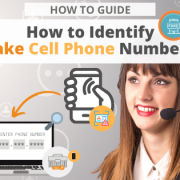Why Buying Phone Leads Can Backfire: Compliance and Accuracy Risks You Can’t Ignore
Buying phone leads can be a tempting business strategy. It can save time and effort in the beginning, but in the end it can lead to costly consequences. In the competitive world of sales and marketing, the promise of instant leads can sound like a no-brainer. A ready-made list of potential customers to start calling today? Why not? But when it comes to buying phone leads, that shortcut can quickly backfire both financially and legally.
If your business relies on cold calling or telemarketing, it’s critical to understand why buying phone leads can do more harm than good. Here are some of the biggest compliance and accuracy risks that can derail your outreach efforts and ways to protect your brand.
3 Ways Buying Phone Leads Can Backfire
1. Compliance Violations Can Lead to Costly Penalties
The biggest hidden danger in buying phone leads is non-compliance with telemarketing and privacy laws. Even if you purchase your list from a “reputable” vendor, you’re still responsible for how that data is used. Be aware of the most common regulatory violations like TCPA, DNC, and GDPR.
Telephone Consumer Protection Act (TCPA) violations happen when calling consumers without proper consent. These violations can result in fines of $500 to $1,500 per call. Even a small campaign can add up to tens of thousands in penalties.
If even a few numbers on your list are on the National Do Not Call (DNC) Registry, your business could face serious consequences from the Federal Trade Commission (FTC).
And if you’re dealing with international or California residents, strict GDPR and CCPA privacy laws require transparent consent and data handling practices that most purchased lists simply can’t guarantee.
Buying leads may save time upfront, but one non-compliant call can tank your finances and damage your reputation beyond repair.
2. Poor Data Accuracy Wastes Time and Resources
Compliance aside, data quality often kills the effectiveness of purchased leads. Most lists are built from outdated or scraped sources that haven’t been verified. This means that numbers on purchased lists can be wrong or disconnected. There could be duplicate contacts across multiple sellers. Mismatched data—like wrong names, industries, or locations—is also a possibility. And almost always, recipients on purchased lists never opted in.
So buying phone leads equates to paying for bad information. Instead of fueling your sales funnel, you end up wasting valuable time calling people who aren’t even potential customers.
3. Brand Reputation Suffers
Today’s consumers are more privacy-aware than ever. A surprise cold call can instantly sour their perception of your company. Worse, one viral social media post or negative review about “spam calls” can harm your credibility long-term.
Your brand reputation is built on trust. Trust starts with respecting privacy, consent, and customer choice, something purchased leads rarely account for.
Sustainable Growth Comes from Permission-Based Leads
The safest, most effective approach to building phone lists is through ethical, permission-based methods. Here are a few proven strategies:
Use web forms and opt-in offers to attract qualified prospects genuinely interested in your services. Leverage SEO and content marketing to generate inbound leads who already trust your expertise. Run compliant ad campaigns that encourage users to voluntarily share their contact info. Nurture relationships with leads through email, SMS, or retargeting as these are all channels that respect consent.
Not only are these methods compliant and cost-effective, but they also produce higher-converting, longer-term customers. It takes a little more time and effort to build your own list, but the results are much more lucrative in the long run.
Use Phone Validation Tools to Protect Your Outreach
If you’re already working with existing contact data—whether collected through web forms, trade shows, or third-party partnerships—phone validation tools can make the difference between compliant, accurate outreach and wasted effort. Phone validation software automatically checks and cleans your contact lists before you call or text anyone. Here’s how these tools help:
Validation tools verify number accuracy. These tools confirm whether a phone number is active, formatted correctly, and capable of receiving calls or SMS. This prevents your team from wasting time on disconnected or fake numbers.
Validation tools can also identify line type. Many platforms can tell whether a number is a landline, mobile, or VoIP. This is crucial for TCPA compliance, since certain outreach methods (like automated calls or texts) are restricted for mobile numbers without explicit consent.
You can automate cross-checks against DNC lists, too. Integrating validation systems with the National DNC Registry or your own internal suppression lists helps you avoid accidental violations.
Finally, use validation tools to maintain data hygiene. Over time, even good data goes stale. Regularly validating your database keeps it clean, up-to-date, and compliant, protecting your sender reputation and improving connect rates.
In short, phone validation isn’t just a technical tool—it’s an essential safeguard for modern marketers. By ensuring accuracy and compliance before dialing, you reduce risk, improve efficiency, and show customers you respect their privacy.
Bottom Line: Don’t Trade Shortcuts for Setbacks
Buying phone leads might seem like a shortcut to growth, but it often leads straight to compliance headaches, wasted resources, and a damaged reputation. Instead of gambling on unreliable data, invest in verifying and validating the leads you already have.
Searchbug makes it easy to validate phone numbers in bulk or in real time. You can identify mobile, landline, and VoIP numbers to ensure compliant outreach (whether via phone call of SMS). Searchbug can help protect your business from costly TCPA and DNC violations by cleaning and enriching your contact lists with accurate, up-to-date information.
Stop buying phone leads. Between legal risks, inaccurate data, and potential brand damage, the long-term costs far outweigh the short-term convenience. Build smarter, safer pipelines with verified data.
If you’re serious about growth, focus on building authentic connections with real people who actually want to hear from you. It’s not just smarter marketing—it’s sustainable business.
With the right tools, you can turn questionable data into reliable, compliant opportunities and build trust with every call you make. Explore phone validation, data enrichment, and compliance solutions that keep your business connected and protected today!












